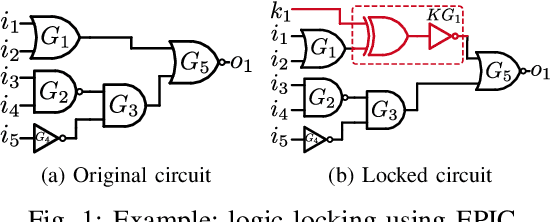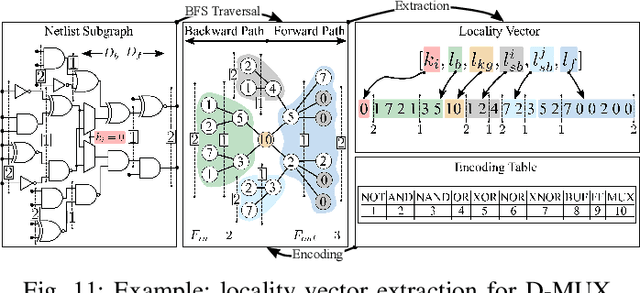Deceptive Logic Locking for Hardware Integrity Protection against Machine Learning Attacks
Paper and Code
Jul 19, 2021



Logic locking has emerged as a prominent key-driven technique to protect the integrity of integrated circuits. However, novel machine-learning-based attacks have recently been introduced to challenge the security foundations of locking schemes. These attacks are able to recover a significant percentage of the key without having access to an activated circuit. This paper address this issue through two focal points. First, we present a theoretical model to test locking schemes for key-related structural leakage that can be exploited by machine learning. Second, based on the theoretical model, we introduce D-MUX: a deceptive multiplexer-based logic-locking scheme that is resilient against structure-exploiting machine learning attacks. Through the design of D-MUX, we uncover a major fallacy in existing multiplexer-based locking schemes in the form of a structural-analysis attack. Finally, an extensive cost evaluation of D-MUX is presented. To the best of our knowledge, D-MUX is the first machine-learning-resilient locking scheme capable of protecting against all known learning-based attacks. Hereby, the presented work offers a starting point for the design and evaluation of future-generation logic locking in the era of machine learning.
 Add to Chrome
Add to Chrome Add to Firefox
Add to Firefox Add to Edge
Add to Edge